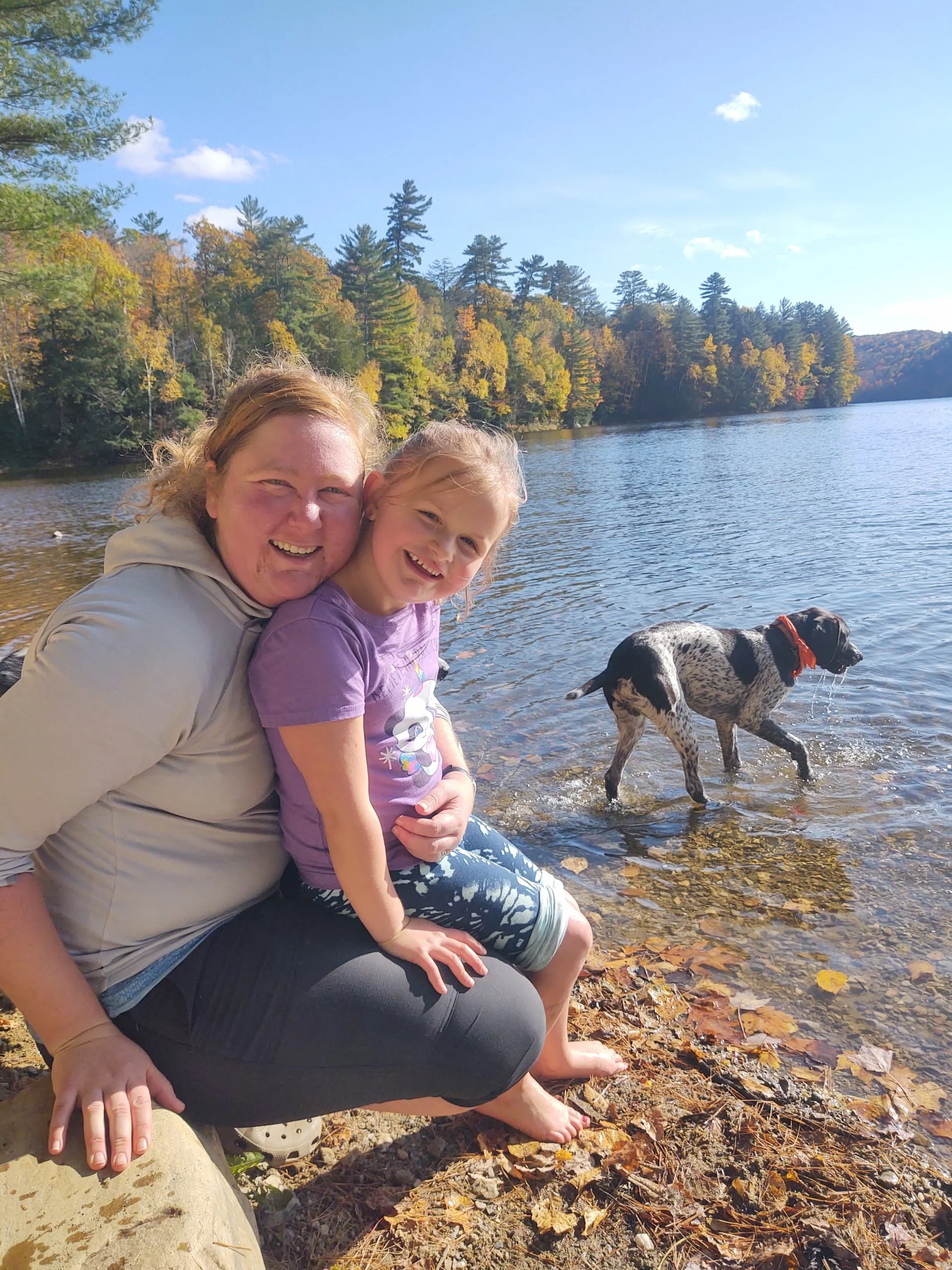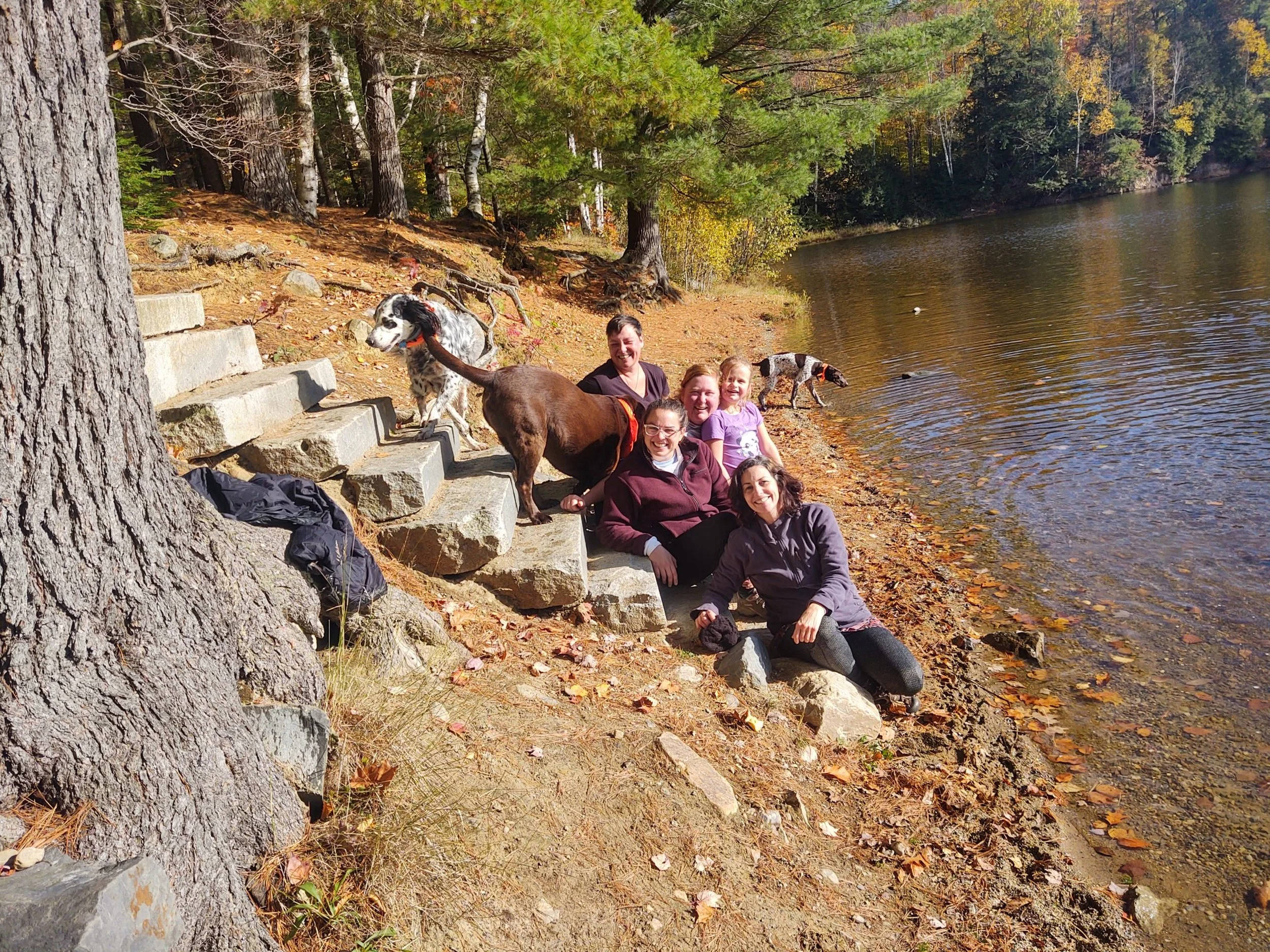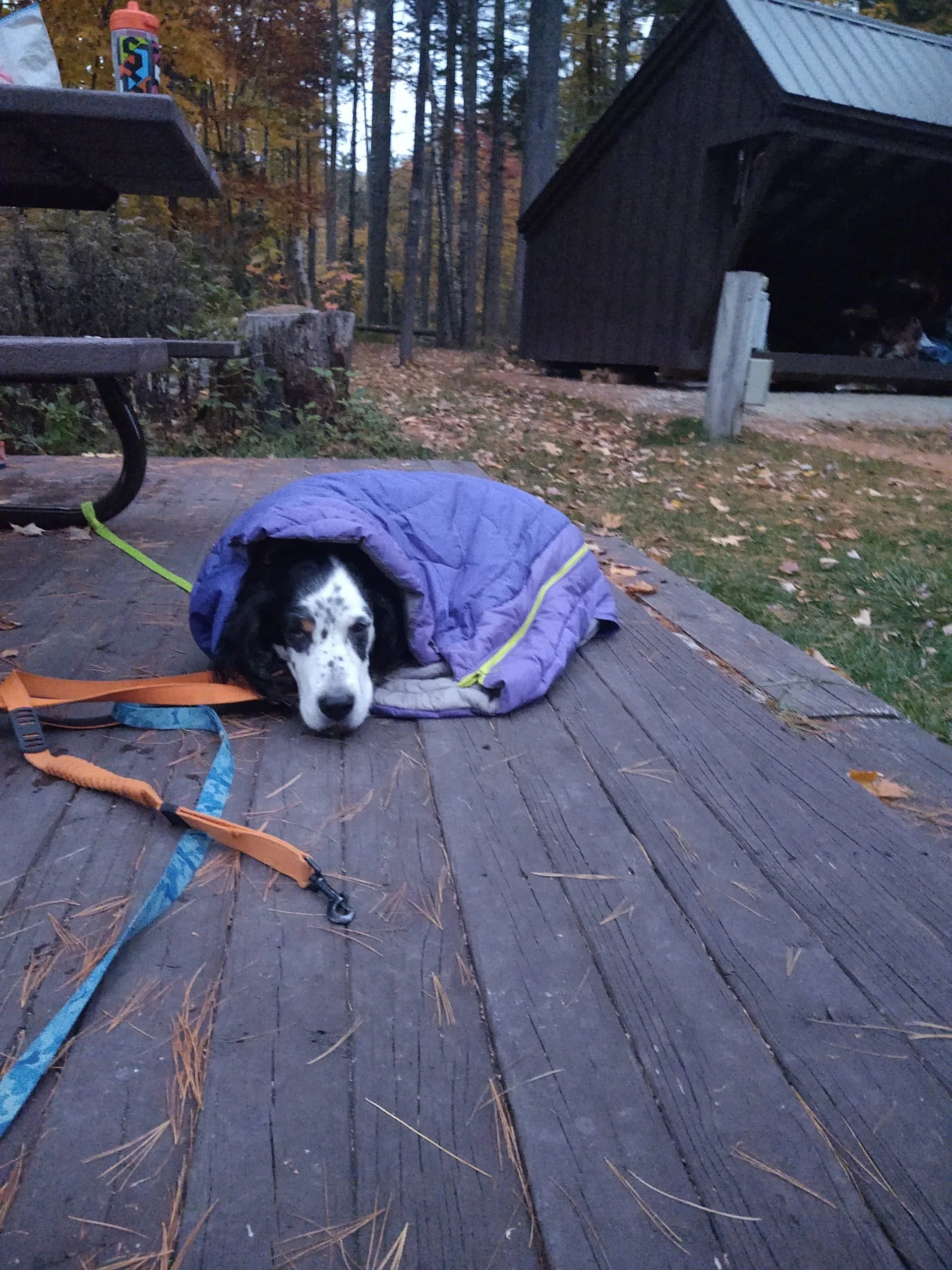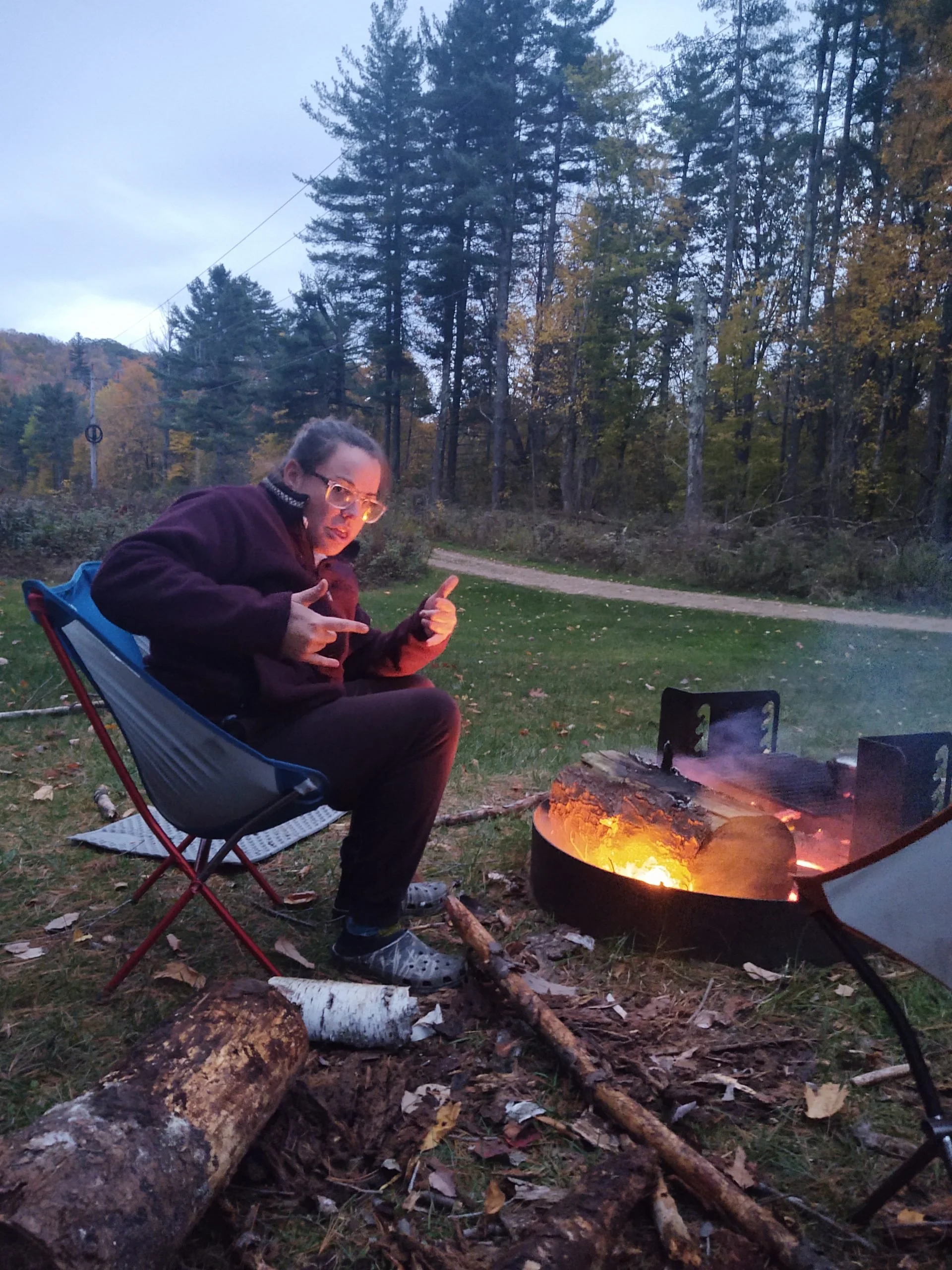Question 1: A little about how it helped your recovery, etc.My personal pathway of recovery has been a combination of being connected to the natural world through hiking and backpacking, my faith, and connection to community. I was 6 years old when I started my first backpacking adventure overnight in the Great Smoky Mountains of North Carolina with my aunt and uncle. The trail we hiked was a small section of the 2,200 mile Appalachian Trail. When I was 12 years old I dreamed that I would hike the entire trail, covering 13 states from Georgia to Maine, when I became an adult.When I turned 23, I set off to hike the entire Appalachian Trail. I hiked the trail solo, without a cell phone, and it took me 6 months to complete. I did not realize this at the time, but backpacking was a liberation from my past traumas and became a walking silent meditation for healing. It was one of the longest stretches of time in my adult life that I was not using recreational drugs and alcohol. In the absence of my chemical dependencies new emotions came up like the rain. It felt uncomfortable and like rain it would come for a time an then it would go away. I realized that there was always sunshine around the corner, and the rain and cold never lasted forever. I also discovered that when you authentically connect to your emotions it is impossible to separate the joys, triumphs, and love without also fully experiencing the sorrows, loneliness, sadness, and grief. After many months of being fully alive without any substances to mask my true feelings, I started to welcome the sadness, the grief, and the loneliness like I welcomed the rain. It began to cleanse my soul and was the source of healing on my journey of recovery.
Question 2: Why did you want to do it?I wanted to do the workshop/overnight because one of my greatest joys is seeing others become empowered by doing something new and outside their comfort zone. There are two zones when someone is experiencing something new and challenging: the “fear” zone and the “uncomfortable” zone. If I am a successful leader on a backpacking trip the participants are feeling a bit uncomfortable but not afraid. If they can feel the uncomfortable and make it through without fear, they are able to become a stronger individual. It was the mountains that taught me to be a strong woman physically, but it was the mental fortitude that has informed my recovery journey. If someone can conquer a mountain or their own fears, what more challenges might they learn to overcome in this lifetime?
Question 3: What were your highlights?Highlights from this trip was swimming in Silver Lake with Savannah the 6 year old Vermont girl who still likes to go for a dip when it is 45 degrees in late October. The dogs were a lot of fun to bring along. Having a campfire and cooking for everyone is always a highlight for me. The great conversations you have with people in the woods is always a pleasure. Being in the woods without any electronic devices and just being present with those around you. We can “solve all the worlds problems” and get to know each other on a deeper level. Creating lifelong friendships.
Question 4: What do you hope people got out of it?I hope people left feeling energized and more confident in their ability to do something outside their comfort zone. I hope people gain a sense of peace by seeing the natural beauty of the leaves, trees, lake, and trail. Lastly, I want participants to connect with one another for a sense of community and know that there are lots of activities where you can feel fully alive without having to use drugs or alcohol.Check out some awesome pictures of Jenn’s past hiking accomplishments!

More photos from the TPCAC backpacking trip:
 "The first Turning Point hiking trip was memorable. Great conversations with great company all the way. We all enjoyed the surrounding nature and a few brave souls even ventured in the water up top. It was an unexpected adventure to find the perfect spot for us overnighters to settle in, along with our dogs! Before dark the day hikers headed back down the mountain after a much-needed fire to stay warm. Not wanting to leave the warmth I enjoyed maintaining the fire while Jenn made dinner for the crew over the flames. As the experienced leader Jenn shared stories and knowledge with backpacking and living in the woods. We went to sleep that night mentally preparing for the thirty-degree weather we would be experiencing, at least I was! That morning I was finding myself grumpy from not having the appropriate sleeping bag for the cold and didn't get much sleep. It didn't last long after building a fire and sipping on a hot beverage, my mood quickly turned around. We had a fun morning of bonding and then eventually made our way back down around noon. When hiking down I reflected on how I can't wait for my next camping experience!" – Hutch
"The first Turning Point hiking trip was memorable. Great conversations with great company all the way. We all enjoyed the surrounding nature and a few brave souls even ventured in the water up top. It was an unexpected adventure to find the perfect spot for us overnighters to settle in, along with our dogs! Before dark the day hikers headed back down the mountain after a much-needed fire to stay warm. Not wanting to leave the warmth I enjoyed maintaining the fire while Jenn made dinner for the crew over the flames. As the experienced leader Jenn shared stories and knowledge with backpacking and living in the woods. We went to sleep that night mentally preparing for the thirty-degree weather we would be experiencing, at least I was! That morning I was finding myself grumpy from not having the appropriate sleeping bag for the cold and didn't get much sleep. It didn't last long after building a fire and sipping on a hot beverage, my mood quickly turned around. We had a fun morning of bonding and then eventually made our way back down around noon. When hiking down I reflected on how I can't wait for my next camping experience!" – Hutch 
 More photos from the TPCAC backpacking trip:
More photos from the TPCAC backpacking trip:


























